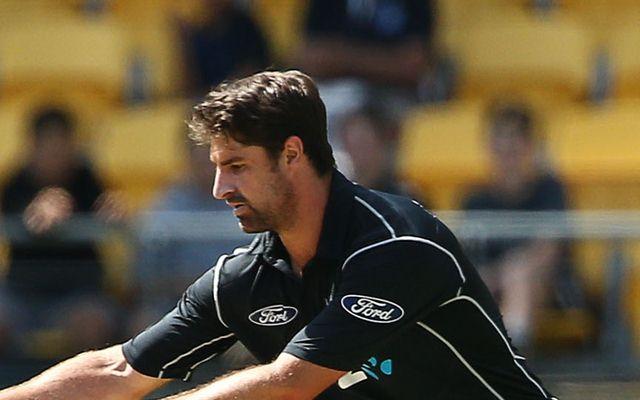John Gloster explains the reason of the foreign players struggling with their health in India
Colin de Grandhomme struggled due to the heat and humidity at the Wankhede Stadium in Mumbai.
View : 2.2K
2 Min Read


John Gloster, the former physiotherapist of the Indian team feels that the foreign players break down in India as they aren’t accustomed to the heat. Recently, in the first ODI against India at Wankhede, New Zealand all-rounder, Colin de Grandhomme vomited on the field while bowling. He was attended by the physio hastily and also left the field for a short period of time which concerned the skipper Kane Williamson.
However, this was not the first instance when a player struggled with the heat in the country as they fail to cope up the hot and humid conditions. Matthew Wade, Australian wicketkeeper, also struggled during the second One-Day International in Kolkata. It was a similar case with Matthew Renshaw in February during the Pune Test and with Dean Jones in Chennai way back in 1986-87. But Gloster feels that diet is a big factor in these conditions and needs to be considered.
High heat and humidity is a dangerous combination
The Australian physio, in an interview to Kashmir Times, explained the reasons for the foreign players especially struggling in the scorching heat in India. “Until one arrives in the sub continent it is very difficult to fully prepare for the environmental impact of playing in this region. High heat and high humidity is a dangerous combination as the bodies natural cooling mechanisms are diminished,” Gloster said.
He also cleared that the diet of the cricketer is the most important thing in these conditions. “Often combined with this is the usual stomach bugs that often complicate matters for the player and medical staff and exaggerates any heat related illness. Getting the balance right between over and under hydration is a specialised task and being completely familiar with the physiology of every individual player is the key to effective hydration management. Diet is also a big factor and has to be considered also,” he continued.
“Normally 10 days to 2 weeks should be enough but the individual player monitoring for hydration control is the key. We test each players hydration status pre, during and post match with a hand held refractometer to be completely accurate as to their exact hydration status. Recovery protocols also are very important as this determines how well one can perform the next day. If you haven’t recovered sufficiently from previous day then next day will be a danger period for injury or illness in these conditions,” Gloster signed off.
Download Our App